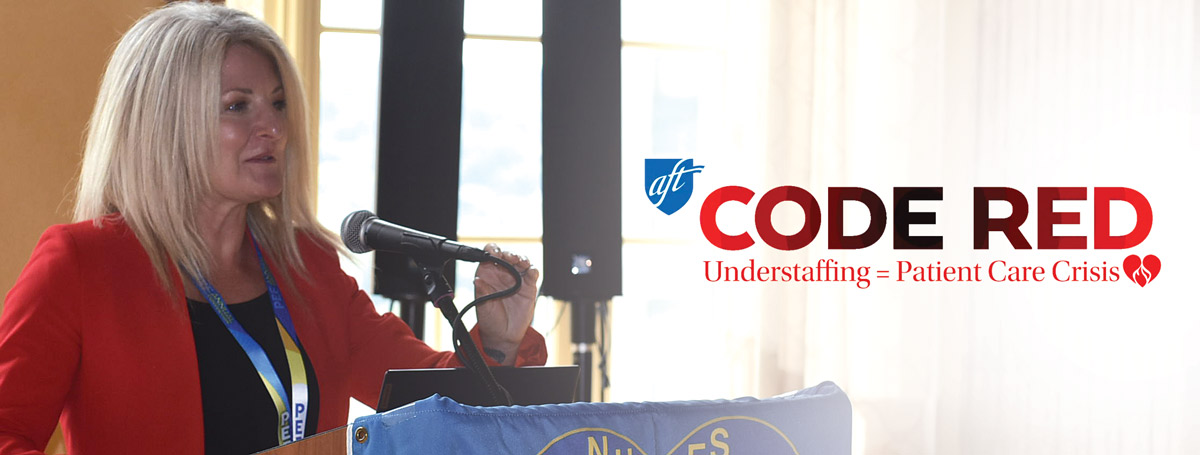
September 25, 2024 — This year’s Nurses’ Luncheon at the PEF Convention once again invited delegates who work in nursing across the state and across all agencies to share and learn from one another.
Amy Lee Pacholk, a Registered Nurse in the Teaching Research Center at SUNY Stony Brook, chairs the PEF Statewide Nurses Committee. She told nurses in attendance that they need to speak up about what’s happening where they work.
“We need to hear from you so that we can properly advocate for you,” said Pacholk. “We’re asking for people to reapply to our Statewide Committee. And we’re also asking people to apply to, and attend, Regional Committees.”
Pacholk reiterated that no one understands their work better than the nurses working on the ground, and it is important to make sure their voices are heard so that PEF can fight for better working conditions.
Pacholk and the committee do know one thing that affects all nurses: Understaffing. In every agency and institution where nurses work, Pacholk said, there is a dangerously low number of staff.
That’s why one of PEF’s parent unions, The American Federation of Teachers (AFT), launched an initiative in February 2023 to recognize the urgent need for better staffing across the nation called “Code Red.”
Kelly Nedrow is the Senior Director of Health Issues at AFT. She addressed the luncheon to educate nurses about Code Red. Nedrow said that while AFT President Randi Weingarten was skeptical about the name of the campaign at first, she recognizes that poor staffing has resulted in a “five-alarm fire” that must be addressed.
“The Code Red campaign sets up four pillars that we strive to succeed in,” said Nedrow.
Those pillars seek to set minimum staffing requirements, create robust training, provide a safe work environment, and create standards to prioritize patients and workers over profits.
Over the year and a half that Code Red has been active, AFT has secured wins in Washington state and Oregon that address staffing shortages and establish laws to protect the rights of workers and restrict the power of CEOs who own facilities.
Since then, Oregon has been able to set Registered Nurse to Patient Staffing ratios and enact fines for facilities that are inconsistent in keeping those ratios.
Nedrow said that while these are significant wins for those states, there is more to be done across the nation. As more affiliates join AFT, Nedrow is optimistic about the fight going forward.
“We may not all work at the same place or have the same issues, but when we have the data that shows that these policies can work, it is one of the most powerful tools we can use when we go to the legislature,” said Nedrow. “Your participation, your support and your rallying with your members is critical to all of the wins happening everywhere right now.”
Shortly after Nedrow’s presentation, the Statewide Nurses Committee awarded four scholarships for continuing education to delegates.
The four winners will receive $400 to help continue their training in the nursing profession. Brandon Burns and Joane Phanord from Region 12, Clara Shamatanga from Region 10, and Michelle Webb from Region 3 were this year’s winners.

